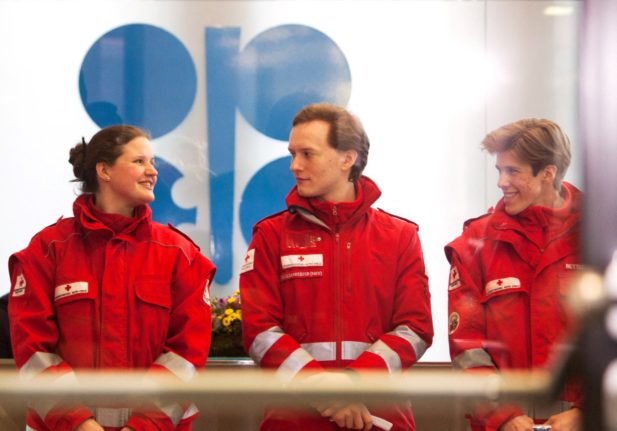Around 1.9 million people are actively involved in organisations and associations on an unpaid basis, according to Austria’s Ministry of Social Affairs.
The reasons for volunteering vary, with most (90 percent) saying that they simply want to help other people, but many (82 percent) stating they have fun getting involved or even that it benefits them personally (64 percent). Whatever your reasons for volunteering, finding the ways to do it – particularly if you want to donate your time but not necessarily your money – can be challenging.
There is no one place where you can find all the opportunities at once online, but The Social Affairs Ministry’s Freiwilligenweb portal comes close to it. There, you can learn about the different possibilities of volunteering, including in areas such as asylum & migration, art & culture, rescue services and disaster relief, animal welfare and others,
The pages will go through different opportunities for your commitment and then give you the opportunity to register for a non-binding consultation. You’ll be referred to a counselling centre near you or to book an online appointment.
READ ALSO: What is Austria’s Voluntary Social Year and how can you get involved?
So, for example, if you want to volunteer in the area of Commitment to the environment and sustainability, the specific page will name some major organisations such as the Alpine Association, Naturefriends or Nature and Biodiversity Conservation Union. You could technically contact those organisations directly – but many traditional NGOs will be at total capacity.
Instead, the ministry recommends you find a counselling centre that can match you to one of the more than 60 non-profit organisations in the sector. There is also the possibility of getting online advice.
Volunteering in Vienna
The country’s capital also has a volunteer network, the Freiwillig für Wien, bringing organisations and people interested in working together online. You can search Vienna for volunteering work with criteria such as days of the week you have to offer, time of the day, and time you can give weekly. Then, choose a field such as education, disaster help, integration, animals, or science.
Or you can check out all available opportunities HERE.
Some major organisations
From Caritas Austria to Hilfswerk Austria and the Red Cross, many significant organisations take “time donations”. You can find a list of some of these Austria-wide organisations HERE.
Or find more prominent NGOs that act specifically in your state HERE.
Caritas, one of Austria’s most prominent NGOs, has its own portal to find volunteering opportunities. Many other major organisations also have pages on their websites where you can learn of the “Freiwillige Mitarbeit”, or volunteer work opportunities:
Many opportunities will require a certain level of German – some will even ask for very good knowledge of the language (C1/C2), but not all of them.
Do you know of any organisations currently looking for volunteers? Let us know in the comments below or via [email protected], and we will add them to this article.



 Please whitelist us to continue reading.
Please whitelist us to continue reading.
Thank you for this very helpful article!